Filter by
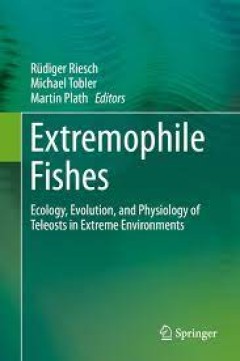
Extremophile Fishes Ecology, Evolution, and Physiology of Teleosts in Extrem…
This book summarizes the key adaptations enabling extremophile fishes to survive under harsh environmental conditions. It reviews the most recent research on acidic, Antarctic, cave, desert, hypersaline, hypoxic, temporary, and fast-flowing habitats, as well as naturally and anthropogenically toxic waters, while pointing out generalities that are evident across different study systems. Knowledg…
- Edition
- -
- ISBN/ISSN
- 978-3-319-13362-1
- Collation
- 14 b/w illustrations, 16 illustrations in colour
- Series Title
- -
- Call Number
- -
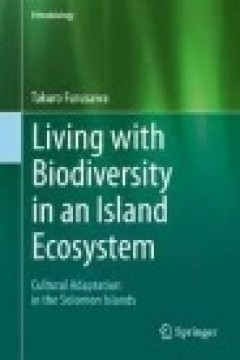
Living with Biodiversity in an Island Ecosystem: Cultural Adaptation in the S…
This book presents a detailed case study of ecological and cultural interactions between the people and their natural environment at Roviana Lagoon, Solomon Islands, a land of rich biodiversity. This volume documents the subsistence lifestyle of the people and their indigenous ecological knowledge, analyzes the effects of recent socioeconomic changes on the people and ecosystem, and proposes fu…
- Edition
- -
- ISBN/ISSN
- 978-981-287-904-2
- Collation
- -
- Series Title
- -
- Call Number
- -
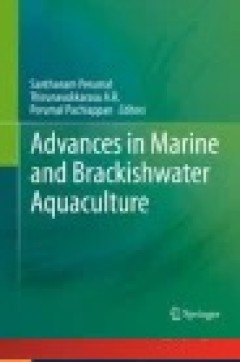
Advances in Marine and Brackishwater Aquaculture
This book compiles the latest findings in the field of marine and brackishwater aquaculture. It covers significant topics such as techniques of culture of live feeds (microalgae, rotifer, Artemia, marine copepod & polychaetes), while also highlighting vital themes like the culture and applications of free and marine sponge associated microbial probiotics, controlled breeding, seed production an…
- Edition
- Ed. 1
- ISBN/ISSN
- 978-81-322-2271-2
- Collation
- XVII, 262
- Series Title
- -
- Call Number
- 551.46 ADV a

Litigating the Rights of the Child: The UN Convention on the Rights of the Ch…
This book examines the impact of the UN Convention on the Rights of the Child (CRC) on national and international jurisprudence, since its adoption in 1989. It offers state of the art knowledge on the functions, challenges and limitations of the CRC in domestic, regional and international children’s rights litigation. Litigating the Rights of the Child provides insight in the role of the CRC …
- Edition
- -
- ISBN/ISSN
- 978-94-017-9445-9
- Collation
- -
- Series Title
- -
- Call Number
- -

Advances in Insect Control and Resistance Management
This book covers advanced concepts and creative ideas with regard to insect biorational control and insecticide resistance management. Some chapters present and summarize general strategies or tactics for managing insect pests such as the principles of IPM in various crop systems and biorational control of insect pests, advances in organic farming, alternative strategies for controlling orchard…
- Edition
- Ed. 1
- ISBN/ISSN
- 978-3-319-31800-4
- Collation
- XI, 339
- Series Title
- -
- Call Number
- 591.5 ADV a
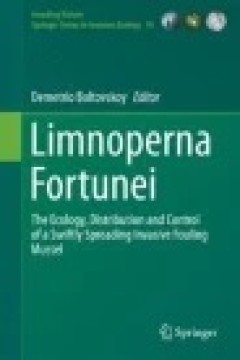
Limnoperna Fortunei: The Ecology, Distribution and Control of a Swiftly Sprea…
This book summarizes all currently available information on the ecology, environmental impacts and control methods of the golden mussel in industrial plants. The golden mussel was introduced in Hong Kong, Taiwan, Japan, and South America between 1965 and 1990, swiftly spreading in freshwater waterbodies. In most areas invaded it has become the dominant macroinverebrate and a major fouling pest …
- Edition
- -
- ISBN/ISSN
- 978-3-319-13494-9
- Collation
- -
- Series Title
- -
- Call Number
- -
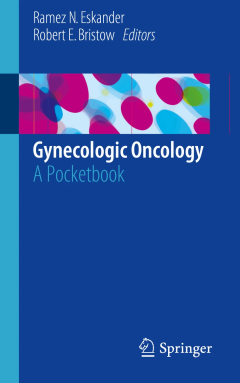
Gynecologic Oncology: A Pocketbook
During this age of advanced technology, there is an incredible amount of dynamic literature surrounding the diagnosis and treatment of gynecologic cancers. Despite this information surplus, house officers and junior faculty studying gynecologic oncology indicate a need for a reliable, easily accessible, streamlined resource for everyday use. Gynecologic Oncology: A Pocketbook is a collaborative…
- Edition
- -
- ISBN/ISSN
- 978-1-4939-1975-8
- Collation
- XIII, 427
- Series Title
- -
- Call Number
- 618.1 GYN

Extracellular Composite Matrices in Arthropods
Emphasis is placed on the elaborate cuticular matrices in insects and crustaceans, spider and insect silks, sialomes of phytophagous and blood-feeding arthropods as well as on secretions of male and female accessory glands. Focus is placed largely on insects, due to the extensive body of published research that in part is the result of available whole genome sequences of several model species (…
- Edition
- -
- ISBN/ISSN
- 978-3-319-40740-1
- Collation
- 39 b/w illustrations, 83 illustrations in colour
- Series Title
- -
- Call Number
- -
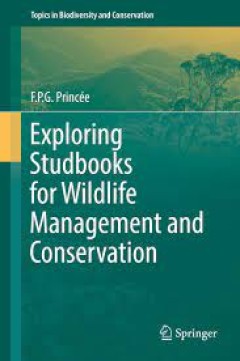
Exploring Studbooks for Wildlife Management and Conservation
Many endangered species of wild animals are managed in captivity through studbooks. In this book these data-rich resources are mined in innovative, integrated and statistically tested ways to maximise information gain for conservation practice – whether for captive or released/reintroduced or managed wild populations. This book is thus an important tool for all species managers, and for stude…
- Edition
- -
- ISBN/ISSN
- 978-3-319-50032-4
- Collation
- 79 b/w illustrations
- Series Title
- -
- Call Number
- -
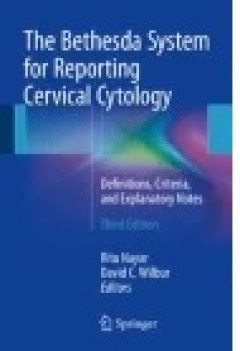
The Bethesda System for Reporting Cervical Cytology
This book offers clear, up-to-date guidance on how to report cytologic findings in cervical, vaginal and anal samples in accordance with the 2014 Bethesda System Update. The new edition has been expanded and revised to take into account the advances and experience of the past decade. A new chapter has been added, the terminology and text have been updated, and various terminological and morphol…
- Edition
- -
- ISBN/ISSN
- 978-3-319-11074-5
- Collation
- XXIV, 321
- Series Title
- -
- Call Number
- -
 Computer Science, Information & General Works
Computer Science, Information & General Works  Philosophy & Psychology
Philosophy & Psychology  Religion
Religion  Social Sciences
Social Sciences  Language
Language  Pure Science
Pure Science  Applied Sciences
Applied Sciences  Art & Recreation
Art & Recreation  Literature
Literature  History & Geography
History & Geography